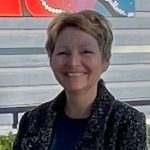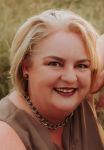Webinar Recording - COMMUNITY FOCUSED COMMUNICATION
EMPA PRINCIPLES #3: COMMUNITY FOCUSED COMMUNICATION
People are the primary focus. We need to work with communities. We need to build communication policy, plans and practice that truly acknowledge a community’s capacity and complexity, its perspectives and priorities.
This webinar looks at EMPA Principle #3: Community-focused communication with Angela Van Dyke, CEO of Riverstone Neighbourhood Centre which is right between Windsor and Blacktown and has seen a few floods this year. She is joined by Julianne Webster-Scott, community engagement officer in one of our most disaster-prone areas, Rockhampton Region of Queensland Fire and Emergency Management. They chat with EMPA Board member and crisis communication and disaster recovery specialist, Rebecca Riggs.
PANEL:
Angela Van Dyke, CEO, of Riverstone Neighbourhood Centre
Julianne Webster-Scott, community engagement officer, Rockhampton Region, Queensland Fire and Emergency Management
Rebecca Riggs, EMPA Board member & crisis communication and disaster recovery specialist
DATE: Wednesday 27 July 2022
Panellists

Rebecca Riggs is a director of EMPA and the driver of the development of the EMPA Principles of Communication in Disaster and Emergency Management, which you can see on our website. Bec has also worked in crisis communication and disaster recovery since 2010, working on the 2011 Lockyer Valley floods recovery communication. She was also and was part of the NSW Office of the Emergency Management 2019-20 bushfires recovery team that supported local governments in their community recovery efforts. She is an advocate getting recovery right, and believes that communication will be the foundation to our success in this.

Angela Van Dyke is the chief executive officer of Riverstone Neighbourhood Centre and Community Aid Service, which is in the Hawkesbury Nepean flood basin and was badly affected by floods earlier this year and two weeks ago. Angela has been active in leading her community in both the immediate flood recovery process and the longer term – now doing both simultaneously. Angela has been CEO of the Centre for almost six years, after a career in social justice, community development and community engagement for programs that empower the most vulnerable people in our community.

Julianne Webster-Scott comes to us from Rockhampton, where she is the Queensland Fire and Emergency Services Rockhampton Region Community Engagement Officer. Rockhampton has had a tough time lately – it started as the first region in Queensland’s history to record a catastrophic fire day in 2018 and then suffered through the massive Gracemere fire, which is still one of Queensland biggest and most effective disaster evacuations. Then they were hit by floods, a damaging hailstorm, more bushfires in 2019, and then violent storms. There will be plenty I have missed from that list! Julianne has worked in emergency management in regional Queensland for 16 years.
Panellists

Rebecca Riggs is a director of EMPA and the driver of the development of the EMPA Principles of Communication in Disaster and Emergency Management, which you can see on our website. Bec has also worked in crisis communication and disaster recovery since 2010, working on the 2011 Lockyer Valley floods recovery communication. She was also and was part of the NSW Office of the Emergency Management 2019-20 bushfires recovery team that supported local governments in their community recovery efforts. She is an advocate getting recovery right, and believes that communication will be the foundation to our success in this.

Angela Van Dyke is the chief executive officer of Riverstone Neighbourhood Centre and Community Aid Service, which is in the Hawkesbury Nepean flood basin and was badly affected by floods earlier this year and two weeks ago. Angela has been active in leading her community in both the immediate flood recovery process and the longer term – now doing both simultaneously. Angela has been CEO of the Centre for almost six years, after a career in social justice, community development and community engagement for programs that empower the most vulnerable people in our community.

Julianne Webster-Scott comes to us from Rockhampton, where she is the Queensland Fire and Emergency Services Rockhampton Region Community Engagement Officer. Rockhampton has had a tough time lately – it started as the first region in Queensland’s history to record a catastrophic fire day in 2018 and then suffered through the massive Gracemere fire, which is still one of Queensland biggest and most effective disaster evacuations. Then they were hit by floods, a damaging hailstorm, more bushfires in 2019, and then violent storms. There will be plenty I have missed from that list! Julianne has worked in emergency management in regional Queensland for 16 years.
Session recording
Resource list
Some resources shared by the panellists and participants that might be of interest:
EMPA Principles of Emergency Communication – a detailed understanding of how we believe communication and community engagement management and disasters should work. This webinar discusses the values outlined in Principle number three: Community-focused communication.
Queensland Local Disaster Management Group – these are made up of emergency services, local government, state departments and other organisations including some local community groups that have a role in disasters e.g. local radio club that come together quarterly to discuss disaster prevention, preparedness, response and recovery. Other states may have similar.
www.emergencyprepare.com.au – Created by four local councils in Victoria as a central location for key messages.
Person-Centred Emergency Preparedness toolkit and collaborating 4 Inclusion website – an all-hazards approach to enable people to self-assess their preparedness, capabilities and support needs and develop a personal emergency plan.
Person Centred Emergency Planning Booklet – a mix of information, contact phone numbers, websites and a checklist where you can record your own personalised information. An example of how the above toolkit can be modified and adapted the required context.
Our Stories Beyond the Disaster 2021 – A collection of lived experiences of those impacted by disaster, gathered by the National Mental Health Commission as part of the research into developing the National Disaster Mental Health and Wellbeing Framework.

